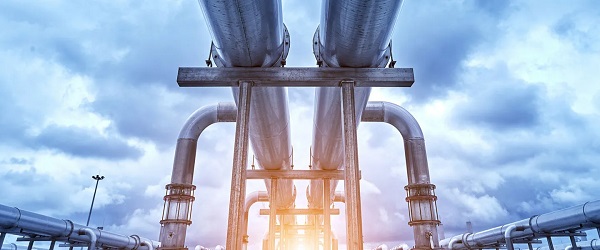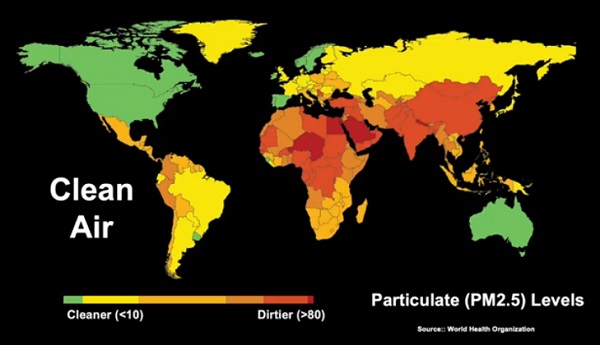Alberta
Danielle Smith slams Trudeau’s carbon tax exemption for Atlantic Canada and not rest of country
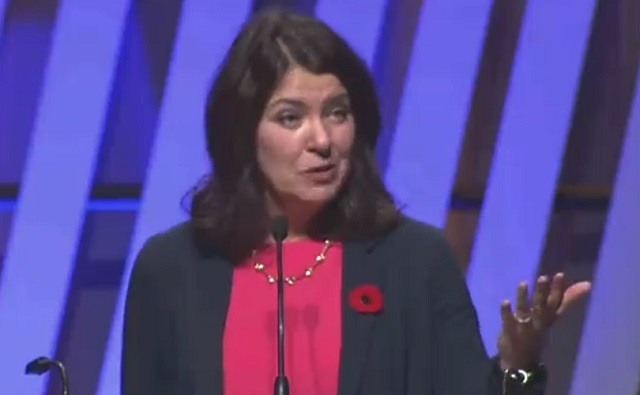
From LifeSiteNews
‘As a Canadian, do you feel it is fair to continue paying the carbon tax on home heating when some places are now exempt?’ the Alberta premier asked.
Alberta Premier Danielle Smith chided Prime Minister Justin Trudeau as being unfair in not applying “tax fairness” for Albertans and all Canadians after Trudeau announced a pause on the carbon tax for home heating oil but only for Atlantic Canada.
“If you’re going to have a federal government asserting that they have to have this power so that everybody is treated equally, then they don’t treat everyone equally. It seems to me that that’s something that should go back to the court and ask them whether or not they want to reconsider whether this is an appropriate use of the federal powers,” Smith said recently at a press conference.
“I would rather the federal government accept that if this is a painful tax coming into winter for Atlantic Canadians, it’s a painful tax going into the winter for everyone and just make sure that he does the right thing and takes the tax off for all types of home heating and every province,” Smith said.
As a Canadian, do you feel it is fair to continue paying the carbon tax on home heating when some places are now exempt?
Comment below 👇 pic.twitter.com/9jHEp9cFpK
— Danielle Smith (@ABDanielleSmith) November 2, 2023
Smith has been fighting a prolonged battle with the Liberal federal government of Trudeau, who has gone on the attack against Alberta’s oil and gas industry through the implementation of ideologically charged laws, including the punitive carbon tax.
Trudeau, however, has given breaks to some parts of the country on the carbon tax for home heating fuels but not others.
He recently announced that he was pausing the collection of the carbon tax on home heating oil in for three years, but only for Atlantic Canadian provinces. The current cost of the carbon tax on home heating fuel is 17 cents per litre. Most Canadians, however, heat their homes with clean-burning natural gas, a fuel that will not be exempted from the carbon tax.
Trudeau’s announcement came amid dismal polling numbers showing his government will be defeated in a landslide by the Conservative Party come the next election.
This resulted in federal Conservative Party (CPC) leader Pierre Poilievre daring Trudeau to call a “carbon tax” election so Canadians can decide for themselves if they want a government for or against a tax that has caused home heating bills to double in some provinces.
Recent political challenges against the carbon tax have failed. Recently, a CPC motion calling for the carbon tax to be paused for all Canadians failed to pass after the Liberal and Bloc Quebecois MPs voted against it. This motion interestingly had support from the New Democratic Party (NDP) but that was not enough to get it passed.
Canadian premiers come together to demand carbon tax pause for all provinces
Trudeau’s latest offering of a three-year pause on the carbon tax in Atlantic Canada has caused a major rift with oil and gas-rich western provinces, notably Alberta and Saskatchewan, and even Manitoba, which has a new NDP government.
This prompted all premiers of Canada to come together to call on the Trudeau government to extend the carbon tax fuel pause to all Canadians.
“All this is doing is causing unfairness, making life less affordable, and really harming the most vulnerable as we get into the winter season,” Smith said today about most provinces being left out of the carbon tax pause.
Going one step further, on November 10, Five Canadian premiers from coast to coast banded together to demand Trudeau drop the carbon tax for home heating for all Canadian provinces, saying his policy of giving one region a tax break over another have caused “divisions” in Canada.
After Trudeau announced a special tax break for Atlantic Canada, Saskatchewan Premier Scott Moe said his province will stop collecting a federal carbon tax on natural gas used to heat homes on January 1, 2024, unless it gets a similar tax break as the Atlantic Canadian provinces.
Alberta has repeatedly promised to place the interests of their people above the Trudeau government’s “unconstitutional” demands while consistently reminding the federal government that their infrastructures and economies depend upon oil, gas, and coal.
As for Smith has fought back, and recently tore a page off a heckler’s fantasy suggestion of a solar and wind battery-powered future after she stepped into the lion’s den to advocate for oil and gas at a conference hosted by a pro-climate change think tank.
Smith has said she will be looking into whether a Supreme Court challenge on the carbon tax is in order. She noted, however, that as Alberta has a deregulated energy industry, unlike Saskatchewan, she is not able to stop collecting the federal carbon tax.
The Trudeau government’s current environmental goals – in lockstep with the United Nations’ “2030 Agenda for Sustainable Development” – include phasing out coal-fired power plants, reducing fertilizer usage, and curbing natural gas use over the coming decades.
The reduction and eventual elimination of the use of so-called “fossil fuels” and a transition to unreliable “green” energy has also been pushed by the World Economic Forum (WEF) – the globalist group behind the socialist “Great Reset” agenda – an organization in which Trudeau and some of his cabinet are involved.
The Trudeau government has also defied a recent Supreme Court ruling and will push ahead with its net-zero emission regulations.
Canada’s Supreme Court recently ruled that the federal government’s “no more pipelines” legislation is mostly unconstitutional after a long legal battle with the province of Alberta, where the Conservative government opposes the radical climate change agenda.
Alberta
Alberta Premier Danielle Smith Discusses Moving Energy Forward at the Global Energy Show in Calgary

From Energy Now
At the energy conference in Calgary, Alberta Premier Danielle Smith pressed the case for building infrastructure to move provincial products to international markets, via a transportation and energy corridor to British Columbia.
“The anchor tenant for this corridor must be a 42-inch pipeline, moving one million incremental barrels of oil to those global markets. And we can’t stop there,” she told the audience.
The premier reiterated her support for new pipelines north to Grays Bay in Nunavut, east to Churchill, Man., and potentially a new version of Energy East.
The discussion comes as Prime Minister Mark Carney and his government are assembling a list of major projects of national interest to fast-track for approval.
Carney has also pledged to establish a major project review office that would issue decisions within two years, instead of five.
Alberta
Punishing Alberta Oil Production: The Divisive Effect of Policies For Carney’s “Decarbonized Oil”

From Energy Now
By Ron Wallace
The federal government has doubled down on its commitment to “responsibly produced oil and gas”. These terms are apparently carefully crafted to maintain federal policies for Net Zero. These policies include a Canadian emissions cap, tanker bans and a clean electricity mandate.
Following meetings in Saskatoon in early June between Prime Minister Mark Carney and Canadian provincial and territorial leaders, the federal government expressed renewed interest in the completion of new oil pipelines to reduce reliance on oil exports to the USA while providing better access to foreign markets. However Carney, while suggesting that there is “real potential” for such projects nonetheless qualified that support as being limited to projects that would “decarbonize” Canadian oil, apparently those that would employ carbon capture technologies. While the meeting did not result in a final list of potential projects, Alberta Premier Danielle Smith said that this approach would constitute a “grand bargain” whereby new pipelines to increase oil exports could help fund decarbonization efforts. But is that true and what are the implications for the Albertan and Canadian economies?
The federal government has doubled down on its commitment to “responsibly produced oil and gas”. These terms are apparently carefully crafted to maintain federal policies for Net Zero. These policies include a Canadian emissions cap, tanker bans and a clean electricity mandate. Many would consider that Canadians, especially Albertans, should be wary of these largely undefined announcements in which Ottawa proposes solely to determine projects that are “in the national interest.”
The federal government has tabled legislation designed to address these challenges with Bill C-5: An Act to enact the Free Trade and Labour Mobility Act and the Building Canada Act (the One Canadian Economy Act). Rather than replacing controversial, and challenged, legislation like the Impact Assessment Act, the Carney government proposes to add more legislation designed to accelerate and streamline regulatory approvals for energy and infrastructure projects. However, only those projects that Ottawa designates as being in the national interest would be approved. While clearer, shorter regulatory timelines and the restoration of the Major Projects Office are also proposed, Bill C-5 is to be superimposed over a crippling regulatory base.
It remains to be seen if this attempt will restore a much-diminished Canadian Can-Do spirit for economic development by encouraging much-needed, indeed essential interprovincial teamwork across shared jurisdictions. While the Act’s proposed single approval process could provide for expedited review timelines, a complex web of regulatory processes will remain in place requiring much enhanced interagency and interprovincial coordination. Given Canada’s much-diminished record for regulatory and policy clarity will this legislation be enough to persuade the corporate and international capital community to consider Canada as a prime investment destination?
As with all complex matters the devil always lurks in the details. Notably, these federal initiatives arrive at a time when the Carney government is facing ever-more pressing geopolitical, energy security and economic concerns. The Organization for Economic Co-operation and Development predicts that Canada’s economy will grow by a dismal one per cent in 2025 and 1.1 per cent in 2026 – this at a time when the global economy is predicted to grow by 2.9 per cent.
It should come as no surprise that Carney’s recent musing about the “real potential” for decarbonized oil pipelines have sparked debate. The undefined term “decarbonized”, is clearly aimed directly at western Canadian oil production as part of Ottawa’s broader strategy to achieve national emissions commitments using costly carbon capture and storage (CCS) projects whose economic viability at scale has been questioned. What might this mean for western Canadian oil producers?
The Alberta Oil sands presently account for about 58% of Canada’s total oil output. Data from December 2023 show Alberta producing a record 4.53 million barrels per day (MMb/d) as major oil export pipelines including Trans Mountain, Keystone and the Enbridge Mainline operate at high levels of capacity. Meanwhile, in 2023 eastern Canada imported on average about 490,000 barrels of crude oil per day (bpd) at a cost estimated at CAD $19.5 billion. These seaborne shipments to major refineries (like New Brunswick’s Irving Refinery in Saint John) rely on imported oil by tanker with crude oil deliveries to New Brunswick averaging around 263,000 barrels per day. In 2023 the estimated total cost to Canada for imported crude oil was $19.5 billion with oil imports arriving from the United States (72.4%), Nigeria (12.9%), and Saudi Arabia (10.7%). Since 1988, marine terminals along the St. Lawrence have seen imports of foreign oil valued at more than $228 billion while the Irving Oil refinery imported $136 billion from 1988 to 2020.
What are the policy and cost implication of Carney’s call for the “decarbonization” of western Canadian produced, oil? It implies that western Canadian “decarbonized” oil would have to be produced and transported to competitive world markets under a material regulatory and financial burden. Meanwhile, eastern Canadian refiners would be allowed to import oil from the USA and offshore jurisdictions free from any comparable regulatory burdens. This policy would penalize, and makes less competitive, Canadian producers while rewarding offshore sources. A federal regulatory requirement to decarbonize western Canadian crude oil production without imposing similar restrictions on imported oil would render the One Canadian Economy Act moot and create two market realities in Canada – one that favours imports and that discourages, or at very least threatens the competitiveness of, Canadian oil export production.
Ron Wallace is a former Member of the National Energy Board.
-

 International13 hours ago
International13 hours agoIsrael’s Decapitation Strike on Iran Reverberates Across Global Flashpoints
-

 Business1 day ago
Business1 day agoThe carbon tax’s last stand – and what comes after
-

 Business22 hours ago
Business22 hours agoTrump: ‘Changes are coming’ to aggressive immigration policy after business complaints
-
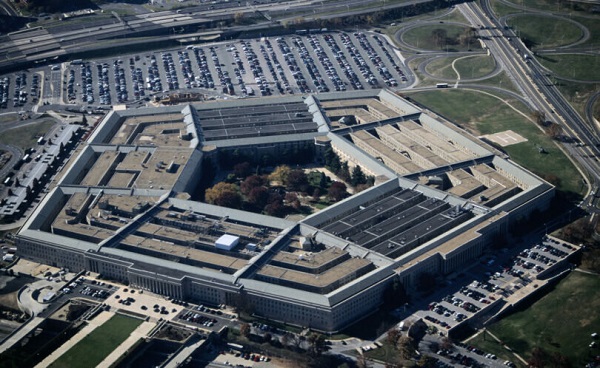
 International1 day ago
International1 day agoPentagon agency to simulate lockdowns, mass vaccinations, public compliance messaging
-
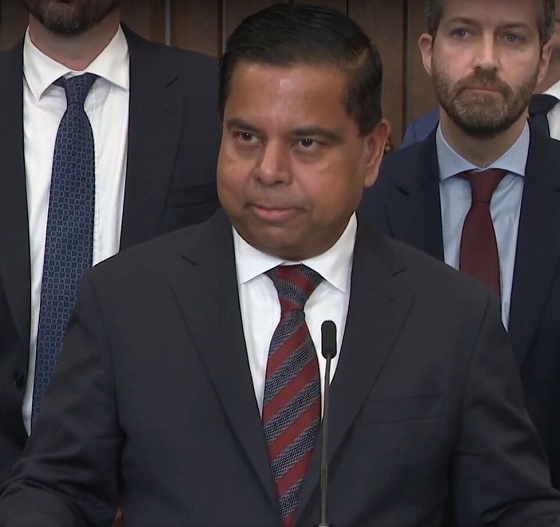
 Business2 days ago
Business2 days agoJustice Centre launches new petition: Keep cash legal and accessible. Stop Bill C-2
-

 illegal immigration22 hours ago
illegal immigration22 hours agoLA protests continue as judge pulls back CA National Guard ahead of ‘No Kings Day’
-
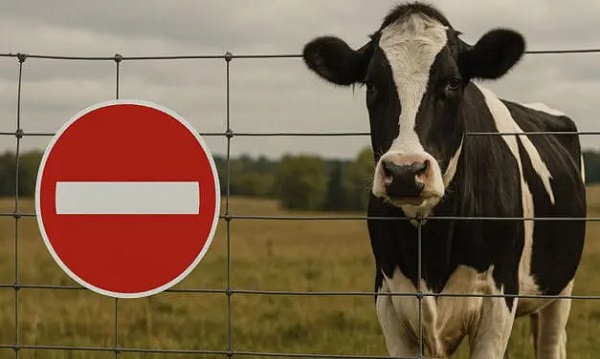
 Business1 day ago
Business1 day agoOur addiction to dairy supply management is turning Canada into a trade pariah
-

 Alberta1 day ago
Alberta1 day agoOil prices are headed for a hard fall





